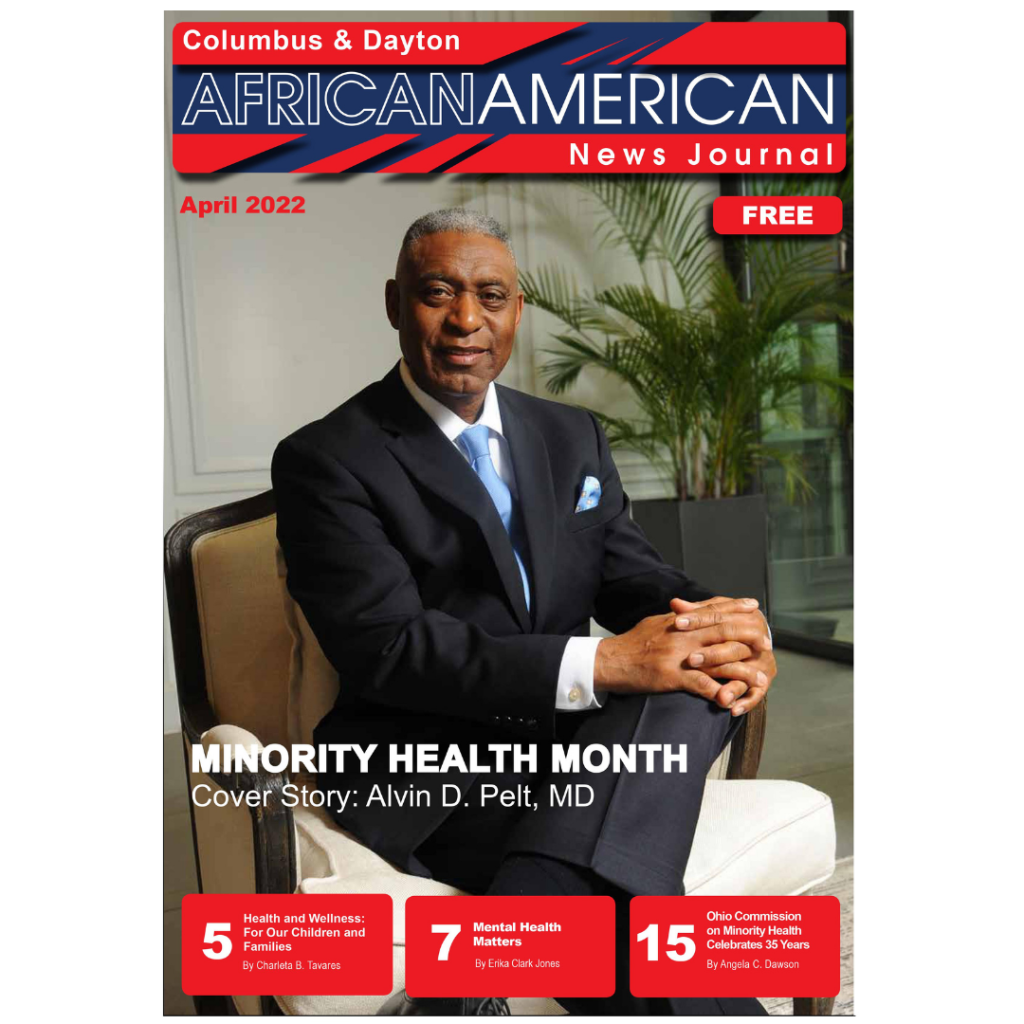Minority Health Month - Mental Health Matters
April is National Minority Health Month, a time when the spotlight is on health disparities that continue to affect the African American community and to encourage action through education, early detection and better overall management of health issues.
The Columbus African American News Journal is commended for wisely using this annual observance to focus on mental health. The underlying trauma associated with confronting racism as a person of color has long-term impacts on both physical and mental health. In fact, Mental Health America has recognized racism as a mental health issue.
Mental wellness matters and there is a strong intersection between physical health and mental health. Individuals with depression have a 40% higher risk of developing cardiovascular and metabolic diseases than the general population. People with serious mental illness are nearly twice as likely to develop these conditions, according to the Lancet Psychiatry Commission’s Blueprint for Protecting Physical Health in People with Mental Illness.
The rates of mental illnesses in African Americans are similar to those of the general population – impacting about one if five Americans. While mental illness does not discriminate, this annual observance serves as a reminder that African American communities struggle with similar challenges to accessing quality mental healthcare as they do with physical healthcare needs.
According to the American Psychiatric Association, only one in three African Americans who need mental health care receive it. In comparison to the white population, African Americans are less likely to receive evidence-based care and are more likely to visit emergency rooms or primary care doctors instead of receiving help from mental health specialists.
It is time to address the barriers that keep many in our community from accessing the care they need which include:
- Stigma associated with mental illness
- Distrust of the healthcare system
- Lack of providers from diverse racial/ethnic backgrounds
- Lack of culturally competent providers
- Lack of insurance, underinsurance
The first step to change this dynamic is to remove the stigma so often associated with mental health as well as addiction and acknowledge, as a community, that it is ok not to be ok. Mental illness is a medical condition and addiction is a disease. Neither are choices anyone makes.
It is a sign of strength, not weakness, to admit that you may be struggling. We have all been through a lot over the last two years. There is additional loss and trauma in our community that has only amplified existing mental health needs. Talking to someone can help.
There is support available to every Franklin County resident, every day through a single phone call. Anyone in Franklin County can call 614-276-CARE (2273) for emotional support and crisis services. This line is staffed by licensed counselors 24 hours a day, seven days a week.
This hotline is just one of the many services provided through the Alcohol, Drug and Mental Health Board of Franklin County (ADAMH) and its network of more than 30 community-based mental health and addiction service providers. As a levy-funded county agency, ADAMH is the behavioral health safety net for the community, providing help to anyone in need, regardless of ability to pay. A full list of providers and services can be found at adamhfranklin.org.
As we encourage you to make that first call, ADAMH also is committed to a creating a more equitable and accessible network of care. We are working with our provider partners to address workforce challenges that include building a more diverse workforce that better reflects the people we serve.
Ensuring greater access to equitable care requires more engagement with diverse communities and input from a variety of voices across Franklin County. ADAMH recently created a new office of Advocacy and Engagement, led by Ameena Kemavor, Ph.D.
Dr. Kemavor joined ADAMH with more than 27 years of experience working in the field of mental health and community services and more than nine years of leadership experience working with diverse populations and advocating for culturally and linguistically competent clinical care. She is an independently licensed professional clinical counselor with a supervision endorsement in the State of Ohio. She has a bachelor’s degree in psychology, a master’s degree in clinical counseling, and a doctorate in counselor education and supervision.
Through Dr. Kemavor’s experience, our advocacy and engagement team is making new connections and enhancing relationships with a wide range partners to ensure that the ADAMH is responsive to the needs of all in our community.
ADAMH continues to listen and learn by engaging faith leaders, community leaders, individuals with lived experience, business leaders, elected officials, educators, and grassroots organizers on how best to meet people where they are to better deliver mental health and addiction services. Together we will work to build a healthier community that supports us all.
You can find more information about ADAMH at adamhfranklin.org. If you or someone you know needs connection to mental health or addiction resources, call 614-276-CARE (614-276-2273) or go to netcareaccess.org and click on the red Chat Now button. A licensed clinician will be available to help you find the right resources.
Erika Clark Jones is CEO of the Alcohol, Drug and Mental Health Board of Franklin County
This column first appeared in the April 2022 Edition of the Columbus African American News Journal

